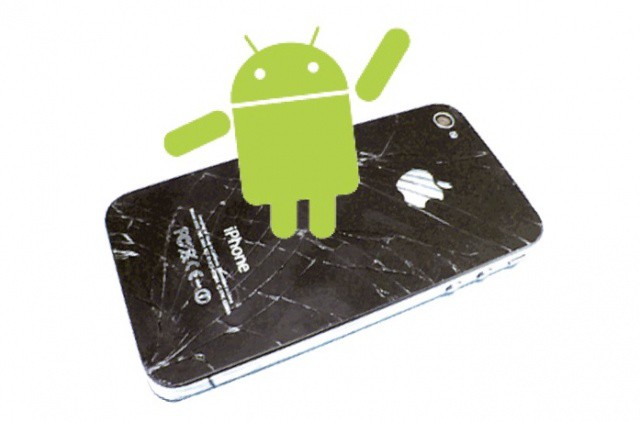China Isn’t Interested In The iPhone, But It Can’t Get Enough Of Android [Report]
Android’s market share continues to grow throughout the world, but one country where Google’s platform is having its biggest impact is in China. It’s now the largest single Android market in the world, with one third of all Android devices sold there during 2012. The iPhone, on the other hand, is struggling there.
According to new research from Informa Telecoms & Media, two in every three mobile phones sold in China in 2012 were powered by Android. The country is “by far” the fastest-growing smartphone market, with a year-on-year growth on 85% during 2012 — and a lot of that was thanks to Android-powered devices.
“Despite the economic downturn, the global smartphone market is enjoying healthy growth and consumers are actually spending more to acquire more technologically-advanced devices. It is estimated that around 786 million smartphone devices were sold in 2012 (including the devices powered by non-certified variants of Android that are proliferating in China), which is 45% more than the total number of smartphones sold in 2011,” explains Malik Saadi, principal analyst at Informa.
So, how are Android’s rivals doing? Not so well, it seems. Apple’s iPhone holds just 5% of the market, while devices powered by Microsoft’s Windows Phone platform account for just 1%. Windows Phone’s share is expected to increase in 2013, however, thanks to Nokia’s new partnership with China Mobile, the world’s largest carrier.
For the iPhone, things don’t look as promising. Informa says Apple must made “radical changes to its ageing [sic] iOS, particularly to the user interface,” if it wants to continue to compete with high-end Android devices. The Cupertino company also needs to introduce a TD-LTE compatible iPhone for China Mobile if it wants to increase its market share in China.
“Looking forward, Android is expected to continue gaining market share globally and, by 2015, one in every two handsets sold worldwide will be powered by it. However, according to Informa Telecoms & Media, the market share of this platform could potentially peak – or even decline – after 2016 owing to a more aggressive penetration of the alternative OSs, most notably Windows Phone,” concludes Saadi.
- SourceInforma



